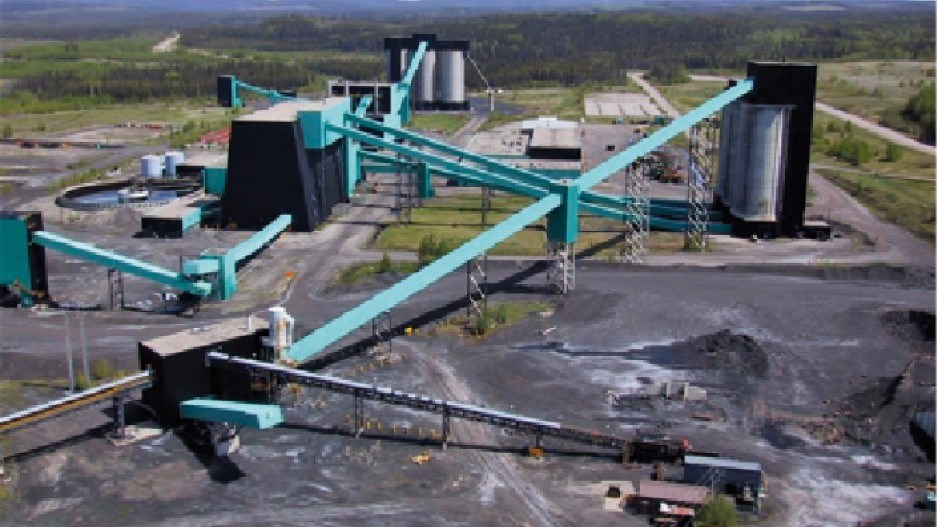The District of Tumbler Ridge, a small town of 2,800 people in northeast B.C., has historically depended on resource industry jobs.
So when Teck Resources (TSX:TCK.A) announced it wouldn't reopen its shuttered Quintette mine for the foreseeable future because of sagging coal prices and lower-than-expected second-quarter profits, the news came as a letdown to local politicians.
Quintette was expected to employ 500 people for 16 years.
"It's disappointing that Quintette is being put off, but the coal is still here," said Tumbler Ridge mayor Darwin Wren. As long as the world needs steel, it will be in operation at some point."
Teck president and CEO Don Lindsay broke the Quintette news during a July 25 conference call with investors.
"Prices for our products have continued to weaken, particularly steelmaking coal," Lindsay said in a press release.
"We continue to adapt to changing market conditions and are taking steps to reduce our capital spending, slowing the start of our Quintette mine."
In its financial statements, released the same day as the conference call, Teck reported a 2013 second-quarter adjusted profit of $197 million, down from a $398 million profit in 2012's second quarter.
Metallurgical coal prices also fell 23% in the second quarter, the company reported.
Teck had planned to reopen Quintette in 2014. The B.C. government awarded Quintette a Mines Act permit in June, essential certification that approves a mine's environmental and reclamation plans. But because of the disappointing financial results and market conditions, no new opening date for the mine has been set.
Quintette was in production between 1982 and 2000 but was closed due to sagging coal prices. Nearly 600 people lost their jobs because of the closure.
The other coal mine in the area, Teck's Bullmoose mine, closed in 2003, putting another 300 people out of work.
Tumbler Ridge, located just 15 kilometres southeast of Quintette, was hit hard.
Wren said many young families were forced to sell their homes and leave town to find work because the town offered few other employment opportunities.
But Tumbler Ridge's fortunes have improved in recent years. Two mines, Anglo American's (LSE:AAL.L) Peace River Coal and Walter Energy's (TSX:WLT) Wolverine Mine, have opened, natural gas drilling has increased and independent power projects such as Capital Power Corp.'s (TSX:CPX) Quality Wind development have generated more construction jobs.
Wren said Tumbler Ridge has also worked to attract tourists by marketing its trail system to mountain bikers.
But municipal politicians aren't taking the town's newfound upswing for granted. Council is drafting a sustainability plan that will outline areas for investment such as schools, the arts and municipal infrastructure from resource revenue.
"Lessons were learned last time when the mines closed," said Wren. "When you're a resource community, you have to prepare yourself for when commodity prices are down."
A reopened Quintette mine was expected to produce 3.5 million tonnes of metallurgical coal per year over its lifespan.
Government assistance for resource-based towns
The market will always determine whether a mine is developed, Bill Bennett, Minister of Energy and Mines, told Business in Vancouver in a phone interview.
Commodity prices, he pointed out, are not and should not be under the influence of the government, regardless of how critical a mine may be to its surrounding community.
But Bennett said that "help around the edges" can be given to resource-based towns navigating both boom and bust periods, as many B.C. communities have to do.
For instance, the government can help create affordable housing for workers moving into a small community not equipped to handle an influx of residents.
And when a mine closes, the government needs to ensure there are debt counselling and employment services in place for local families.
"We can help with these things," Bennett said.
"But we can't change the fact that the market determines commodity prices."




